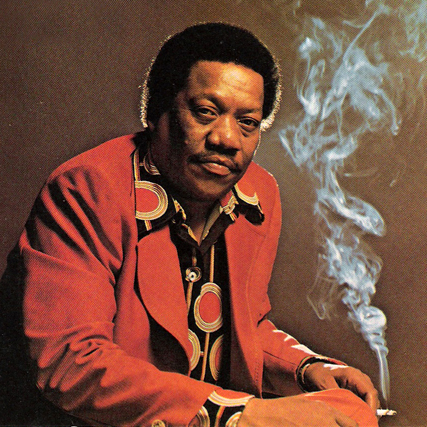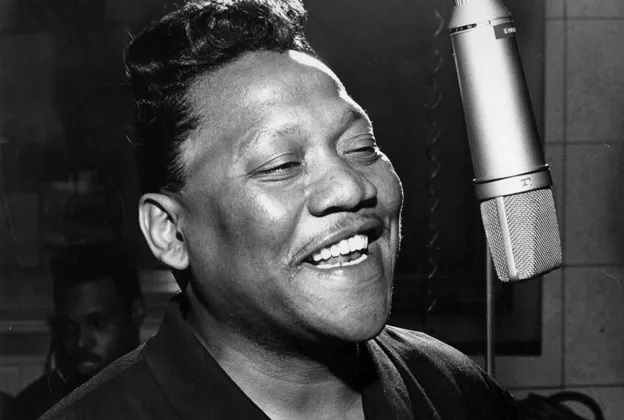Bobby “Blue” Bland: The Soul of the Blues
Introduction
Bobby “Blue” Bland was one of the most influential and versatile blues vocalists of the 20th century. Renowned for his smooth voice, rich emotional delivery, and fusion of blues, gospel, and soul, Bland crafted a sound that bridged traditional blues with the emerging rhythms of R&B. Often referred to as the “Lion of the Blues,” Bland’s career spanned over six decades and left an indelible mark on American music.
His ability to convey vulnerability and strength in equal measure earned him a loyal following and accolades from critics, fellow musicians, and fans alike. Despite his quiet demeanor, Bland’s recordings roared with passion, and his live performances were legendary. This biography explores the life, music, and enduring legacy of a true American original.

Childhood
Robert Calvin Bland was born on January 27, 1930, in the small town of Rosemark, Tennessee, just north of Memphis. His early life was marked by hardship. His father died while he was still a child, and Bobby grew up in poverty, raised by his mother, I. J. Brooks, and a stepfather. By the age of 17, Bland had moved to Memphis, where he found work as a ditch digger and chauffeur to help support his family.
The bustling Beale Street scene in Memphis exposed young Bobby to a vibrant world of gospel, blues, and R&B. It was here that he joined a gospel group known as the Miniatures and began to develop the vocal chops that would define his career. His early musical influences included Nat King Cole, Perry Como, and gospel singers like the Soul Stirrers and the Dixie Hummingbirds (AllMusic).
Youth
In the late 1940s and early 1950s, Bland became part of a group of aspiring musicians who would later be known as the Beale Streeters, a loosely affiliated collective that included B.B. King, Johnny Ace, and Junior Parker. These friendships proved crucial to his development as an artist.
In 1951, Bobby made his first recordings for Modern Records but found little success. His career was temporarily interrupted in the early 1950s when he was drafted into the U.S. Army during the Korean War. After his discharge in 1955, he returned to Memphis and rejoined the Beale Streeters. It was around this time that he adopted the nickname “Blue” to distinguish himself from other artists.
Under the guidance of bandleader and producer Joe Scott, Bland signed with Duke Records and began a prolific recording career. Scott helped arrange Bobby’s music and created the lush horn-driven sound that would become his signature (The Blues Foundation).
Adulthood
The late 1950s and early 1960s marked the peak of Bobby “Blue” Bland’s commercial success. Songs like “Farther Up the Road” (1957), “Turn On Your Love Light” (1961), “I Pity the Fool” (1961), and “That’s the Way Love Is” (1963) established him as a powerhouse in R&B and blues. His voice—gravelly yet smooth—combined with emotional storytelling, made him a standout figure.
Bland’s music often tackled themes of love, betrayal, and regret. His signature growl, known as the “squall,” became an instantly recognizable vocal technique. Despite being a blues artist, Bland infused his music with gospel fervor and the emotional intensity of soul, bridging the gap between blues and the burgeoning soul movement.
Although he never achieved the same crossover pop success as contemporaries like Ray Charles, Bland developed a devoted fan base and remained a staple on the R&B charts through the 1970s. He toured relentlessly, performing with artists like B.B. King, and eventually collaborated with him on the popular 1974 live album “Together for the First Time… Live.”
In the 1980s and 1990s, Bland’s output slowed, but he continued to record and tour. Albums like “Members Only” (1985) and “Midnight Run” (1989) kept him relevant. In 1992, he was inducted into the Rock and Roll Hall of Fame, a testament to his contributions to American music (Rock & Roll Hall of Fame).
Major Compositions
Bobby “Blue” Bland’s discography is rich with classics that continue to influence generations of musicians. Some of his most important songs include:
- “Farther Up the Road” (1957) – His first major hit, this song features Bland’s raw emotional delivery and Joe Scott’s dynamic horn arrangements. It set the tone for his career.
- “I Pity the Fool” (1961) – A searing tale of heartbreak, this song became one of Bland’s signature hits, covered by numerous artists in later years.
- “Turn On Your Love Light” (1961) – Upbeat and electrifying, this track became a favorite among soul and rock performers. The Grateful Dead often performed it live.
- “Ain’t No Love in the Heart of the City” (1974) – A soulful lament that found renewed popularity decades later through samples in hip-hop, including Jay-Z’s “Heart of the City (Ain’t No Love).”
- “That’s the Way Love Is” (1963) – A poignant reflection on the ups and downs of relationships, this ballad showcased Bland’s ability to convey deep emotion.
These compositions revealed not only Bland’s vocal mastery but also his versatility—he could sing gritty blues, tender ballads, and vibrant R&B anthems with equal conviction.
Death
Bobby “Blue” Bland passed away on June 23, 2013, at his home in Germantown, Tennessee. He was 83 years old. The cause of death was complications from an ongoing illness, including heart and respiratory issues (NPR).
At the time of his passing, tributes poured in from across the music world. Fellow blues and soul artists praised his singular voice, his generosity as a performer, and his influence on multiple genres. He was buried at Memorial Park Cemetery in Memphis.
His son, Rodd Bland, who had performed as his drummer, has worked to preserve his father’s musical legacy, ensuring that future generations will remember the enduring impact of Bobby “Blue” Bland.
Conclusion
Bobby “Blue” Bland was more than a blues singer—he was a storyteller, a stylist, and a bridge between musical traditions. His work laid the foundation for modern soul and R&B, influencing artists ranging from Al Green and Otis Redding to Jay-Z and Eric Clapton. His music, steeped in heartache, hope, and human experience, remains timeless.
Though he never sought the limelight, Bland’s voice illuminated the emotional depth of the blues. Through his recordings and relentless dedication to his craft, he earned a place among the greats of American music.
As the Blues Foundation aptly put it, Bobby “Blue” Bland gave voice to the inexpressible. His growl, his soul, and his truth live on in every note.

Comments are closed